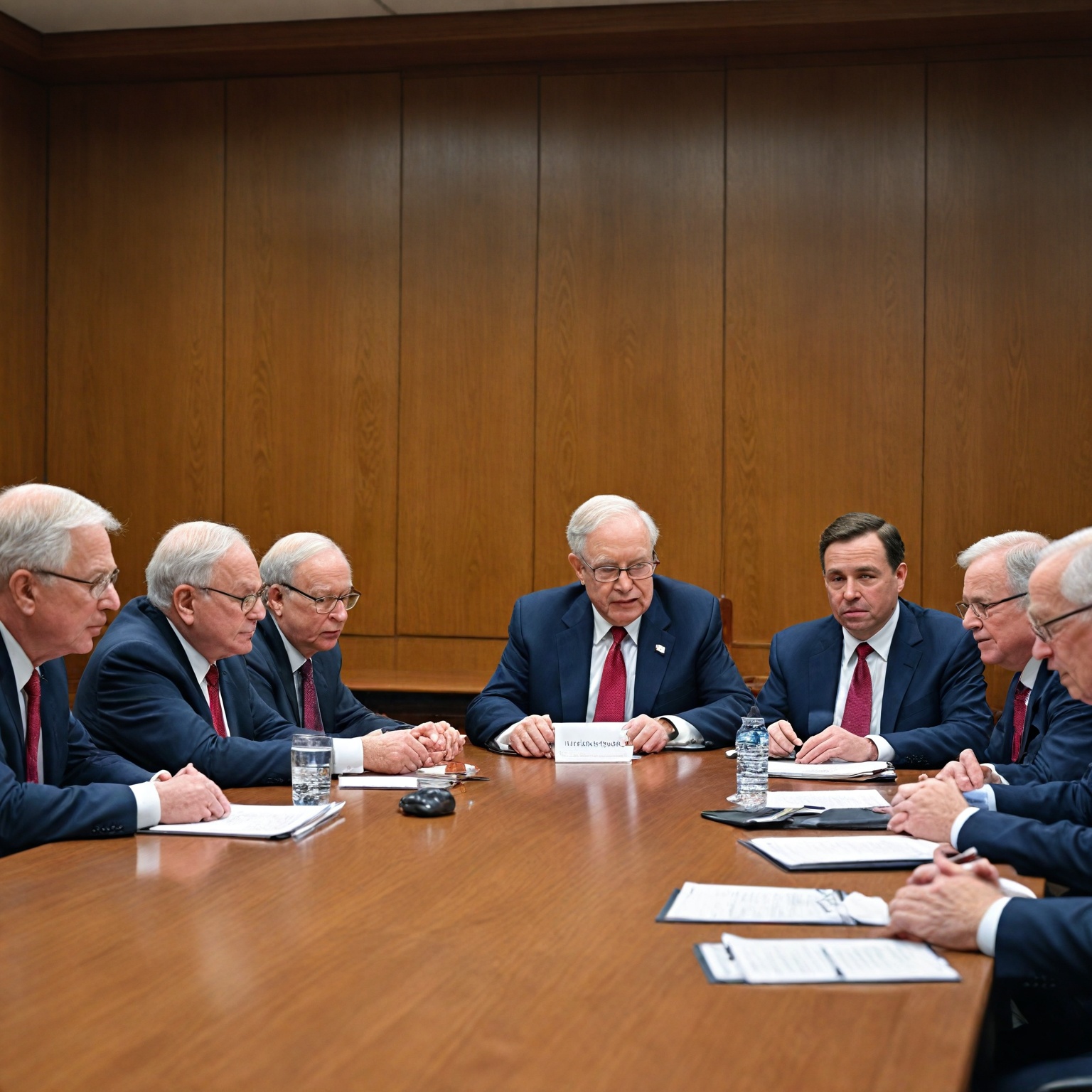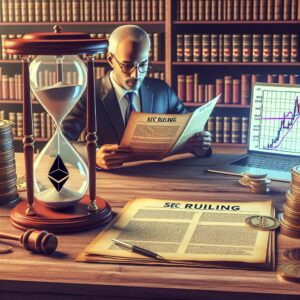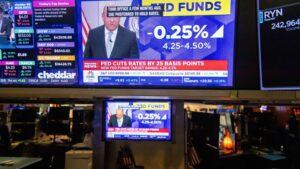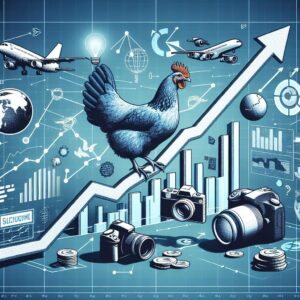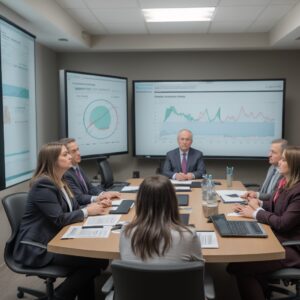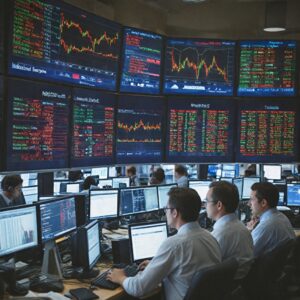Summary
Warren Buffett, the highly regarded investor and CEO of Berkshire Hathaway, has made headlines for his criticism of President Donald Trump’s tariff policies. During the Berkshire Hathaway Shareholders Meeting on April 30, 2022, he warned of potential negative effects on global trade, markets, and consumers, describing tariffs as acts of economic warfare. Buffett’s position has been consistent over the years, having expressed similar concerns in 2018 and 2019 about the wide-ranging global implications of such measures, including potential inflationary pressures. His criticisms extend to Trump’s first-term tariff policies, which have sparked considerable debate about their long-term effects on the U.S. economy, businesses, and consumers.
At the same meeting, Buffett humorously asserted that tariffs, being a tax on goods, aren’t covered by the “Tooth Fairy”. His comments underscore his concerns about the implications of Trump’s tariff policies, which he sees as a continuation of Trump’s protectionist approach that prioritizes reshoring manufacturing and addressing trade imbalances. Buffett and other economic experts warn of significant risks associated with these policies, including retaliatory measures from other countries that could harm American businesses and consumers.
This discussion around tariffs has broader implications as it delves into the history, purpose, and impacts of tariffs, tracing back to their use in shaping the U.S. economy since before the Constitution. The effects of tariffs vary across different sectors, with significant impacts on manufacturing and agriculture. Still, other industries, like technology and healthcare, are differently impacted. As global economic interdependence continues, the mixed and often unintended consequences of tariffs underline the complexity of the issue.
Buffett’s comments on tariffs, especially his memorable analogy with the Tooth Fairy, add a high-profile voice to the global discussion on the topic. They serve as a stark reminder of the delicate balance needed in trade policy, considering the protection of domestic industries and the broader economic impacts. These perspectives from Buffett and other economic experts continue to be relevant as debates on tariff policies persist.
Warren Buffett
Warren Buffett, the seasoned investor and CEO of Berkshire Hathaway, has expressed notable concerns regarding President Donald Trump’s tariff policies . At the Berkshire Hathaway Shareholders Meeting on April 30, 2022, Buffett shared his thoughts on tariffs and the potential implications on global trade and markets . In an uncharacteristically candid manner, Buffett highlighted the potential inflationary effects of tariffs and the subsequent impact on consumers . He described tariffs as acts of economic warfare, which can trigger unpredictable effects on the global economy .
Buffett’s criticisms extended to Trump’s first term tariff policies which had sparked a widespread debate about their long-term effects on the U.S. and its businesses and consumers . While some supporters contended that the tariffs were necessary to address unfair trade practices and protect domestic industries, others, including Buffett, argued that the increased costs of goods and materials, combined with retaliatory measures from other countries, hurt American businesses and consumers .
Buffett further cautioned against Trump’s proposed tariffs, indicating that they signal a continuation of his protectionist approach, which prioritizes reshoring manufacturing and addressing trade imbalances . However, these policies come with significant risks, as pointed out by Buffett and other economic experts .
Buffett also referenced his experience with tariffs, stating that “Tariffs are actually, we’ve had a lot of experience with them. They’re an act of war, to some degree” . He humorously added that tariffs are a tax on goods, and the Tooth Fairy doesn’t cover the costs .
Donald Trump
President Donald Trump has been known for implementing a series of tariffs, which have sparked varied responses from different sectors. A large portion of his political support comes from farming communities, however, there is growing concern that these tariffs and other policies will make it difficult for these agricultural workers to carry out their jobs . There is particular anxiety over the effects of these policies on sectors such as manufacturing and agriculture, while industries like technology and healthcare have largely remained unaffected .
During his presidency, Trump took swift action to protect America’s national security from a global oversupply of steel and aluminum by imposing tariffs on imports of these goods . The notion behind tariffs is that they often protect infant industries and developing economies by making foreign goods more expensive, which in turn encourages consumers to opt for the more costly domestic product .
Concept and Impact of Tariffs
Tariffs have played a role in shaping the national economy of the United States since before the Constitution was signed. Over the past four decades, there has been a significant rise in cheaper international imports, particularly from China, leading to discussions on the modern implications of tariffs.
History and Purpose of Tariffs
Historically, tariffs have been used to reduce the competitiveness of foreign goods and have often resulted in an increased cost of goods. In the modern context, tariffs have been proposed as a means to revive U.S. manufacturing jobs and are viewed as tools for geopolitical leverage.
Impact on Various Industries
The impact of tariffs significantly varies across different sectors. They have a pronounced effect on manufacturing and agriculture, driving up costs and reshaping global trade relations. In contrast, industries such as technology and healthcare, with a focus on digital products and domestic production, are differently impacted.
Tariffs can potentially lead to higher consumer prices, disrupt supply chains, and challenge US competitiveness, pushing businesses to adapt their strategies.
Effect on Employment and Consumer Goods
Tariffs can also influence employment rates within the manufacturing sector. The Federal Reserve Board found that tariffs led to a reduction in manufacturing employment by 1.4%, despite the modest gains achieved by protecting domestic producers from foreign competition.
The effects of tariffs extend to consumers as well, driving up the cost of significant purchases like automobiles. A study by the Center for Automotive Research estimated that a 25-percent auto tariff could increase the price of a new vehicle by as much as $6,875 and simultaneously drive up used car prices.
Despite the potential negatives, some argue that tariffs can offer benefits by addressing issues such as “dumping,” a practice where foreign countries sell a product well below its production cost to force local manufacturers to shut down.
Trump’s Tariffs
Trump’s Tariffs were a central part of his political vision, with the aim of leveling the global playing field and ensuring fair trade for American producers . He announced plans to impose 25% tariffs on products from Mexico and Canada, and double tariffs on China to 20% .
Manufacturing and Agriculture Impact
Tariffs most significantly impacted the manufacturing and agriculture sectors, driving up costs and reshaping global trade relations . The U.S. import tariffs and subsequent retaliatory tariffs imposed by other countries on U.S. agricultural exports have hurt the U.S. agricultural industry and raised food prices .
Automobile Industry Impact
In the automobile industry, a 25-percent auto tariff would raise the price of a new vehicle by as much as $6,875 and impact the used car market as well . This turmoil in the industry included administration-proposed changes on CO2 and CAFE regulations, section 232 steel and aluminum tariffs already implemented, and what looks like an inevitable trade war . Some automakers like BMW committed to continuing investment in Mexican production, while others adjusted supply chains and reevaluated their manufacturing strategies .
Economic Impact
The Federal Reserve Board found that the tariffs caused a reduction in manufacturing employment of 1.4% . Some companies who were investing to ramp up production would hire, while those who faced higher expenses may have had to cut back . These tariffs were described by Warren Buffet as a tax on goods and an “act of war” to some degree .
Global Reactions and Retaliatory Tariffs
Trump’s actions and proposals prompted other countries to consider, and in some instances implement, retaliatory tariffs . The escalating tensions between the U.S. and other countries, particularly in the wake of proposed and implemented tariffs on goods from Europe, China, Mexico, and Canada, led to increasing concern among U.S. market participants, especially farmers .
Buffet’s Perspective
Warren Buffet criticized these tariffs, suggesting that any leader proposing significant changes to trade policy must effectively communicate the rationale behind these decisions . He pointed out that tariffs are essentially a tax on goods and emphasized the importance of asking ‘And then what?’ in economics, highlighting the necessity to consider the long-term consequences of such actions .
Buffett’s Analogy with Tooth Fairy
Warren Buffett, the CEO of Berkshire Hathaway, shared his perspective on tariffs in an interview on April 11, 2023, in Tokyo, Japan. He humorously used the analogy of the Tooth Fairy to illustrate his point about the impact of tariffs on the economy. Buffett emphasized that tariffs, over time, act as a tax on goods, and humorously added that the Tooth Fairy does not pay for them. In a 2019 interview with CNBC, Buffett also pointed out that while threatening tariffs can sometimes be an effective negotiating tactic, implementing tariffs that lead to a trade war could have severe consequences. These perspectives on tariffs from Buffett underscore the complexity of the issue in the modern globalized and economically interdependent world.
The content is provided by Harper Eastwood, Financial Pulse Now

